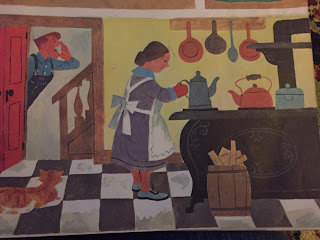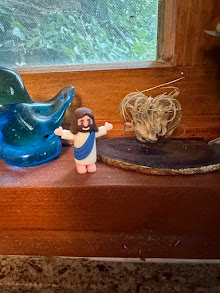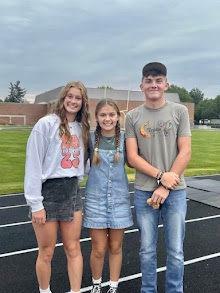“Choose the least important day in your life. It will be important enough.”
- Thornton Wilder, Our Town
Whether the day is frigid or warm, dark or sunny, the first thing I do after I come down the stairs into the kitchen is make coffee. Perhaps it’s the whole nine yards in the Bunn...or may be just a quick cup from the Keurig. I pour tumblers of milk, then either fill cereal bowls or cut a coffeecake for the two of us. It’s our breakfast; it’s what we do everyday.
But...as Thornton Wilder reminds us, what seems commonplace and routine to you may be fantastical in someone else’s eyes.
Some deep atavistic urge must well up after the autumnal equinox, else why would people flock to pumpkin patches and sunflower fields? I understand the attraction of apple orchards and wineries, but piling up pounds upon pounds of picturesque but largely inedible squash as a proxy for blessings of a bountiful harvest? Acorns...or potatoes….or, heaven forfend, turnips..are a more rational option.
October is the season for news reporters and television producers to leave their urban enclaves and seek out those ‘raise the song of harvest home’ while they ‘safely gather in, ere the winter storms begin…’ Only harvest itself is as predictably perennial as the human interest story featuring stalwart farmers, dusty red sunsets, and the fascinating machines that transform standing stalks into hoppers, then truckloads, then bins full, of the golden grains that feed the world.
Hugh Sidey not only wrote about Presidents as a professional, but he was known and respected by the men and women of the White House as a friend. Mr. Sidey had deep roots in Iowa; his brother ran the newspaper in Greenfield, and one trip west in 1994, he drove down to Atchison county to talk about agricultural trade with the Hurst family. Blake and I considered him a celebrity...he was not just an icon in Time magazine, but also a pundit on several of the political shows we loved to watch on Sundays. We discovered he was also a sincerely kind and generous man, genuinely fascinated with agriculture and respectful of Midwesterners in general. (He treated our whole family to a steak dinner in Washington, D.C. producing the biggest tab I had ever seen, and bestowed books of history on each of the three kids….)
Back in the ‘90s, CNN came to visit us, hot on the trail of an encouraging heart-warming harvest story featuring a ‘real’ family farm. From the sausage and eggs popping grease to the school bus pulling up into the driveway and the work clothes flapping on the early morning breeze, no homely detail was too small to be recorded. They interviewed Blake in the midst of one of the prettiest corn fields on the farm, and made their story more theatrical and less honest when the whole family feasted under the big pine trees of Millie and Charlie’s front yard for the noon day meal.
Years later, another early morning in a different kitchen, the cameras are rolling while Blake talks about technology in farming and I peel apples for a big slab pie for the midday meal. Once again, the smallest of food details fills the lens and I’m as conscious of the string of Golden Russet peels as Blake is about the nuance of his explanations.
Times have changed, but Charlie still drives the filmmakers across the wide bottom field while a drone hovers overhead and some of his great granddaughters sit in the stalks making corn husk dolls. And we eat...it’s what we do! Crock pots and corn chips, sandwiches and salads. Pie. Simple fare, the kind of food we sling into Tupperware and Rubbermaid every day of harvest. But someone is watching; we are not alone. This Sunday’s meal is recorded, if not for posterity, then at least for our memory, which makes it important enough.
They were a rare and wonderful experiences when Hugh Sidey and the guys at CNN came to the farm; farmers typically didn’t attract the attention of major magazines and news organizations without a farm crisis or the natural disasters that are the staple of slow news days. We were proud to host these visitors from another world to our family farm: proud of our family as much as the farm itself. There was no particular angle or ‘gotcha’ moment...no issue or practice we needed to defend or pussyfoot around. Our big machinery, our terraces and no till practices, our productivity, and our hard work from generation to generation told our story.
The folks from Farm Evolution sought answers to complex and controversial questions, not a feel good story about families working together on the land. Eating together was picturesque; the weather was beautiful; the grandkids playing in the dirt were endearing...and good video!..., but tell us about why we should trust you with this science called genetic engineering?
No doubt in my mind these fertile Missouri fields will host other curious visitors some future sunny breezy October day. What will they expect as they film the harvest? Will they find our family farm quaint? Confusing? Cold and technological? Will we be able to convey the bond between family and land? The deep knowledge built of decades of experience and passed by stories as much as field maps? Will they understand that our least important days...our routine days of coffee, dust, and paper plates …. week after week, year by year….are important enough.
















No comments:
Post a Comment